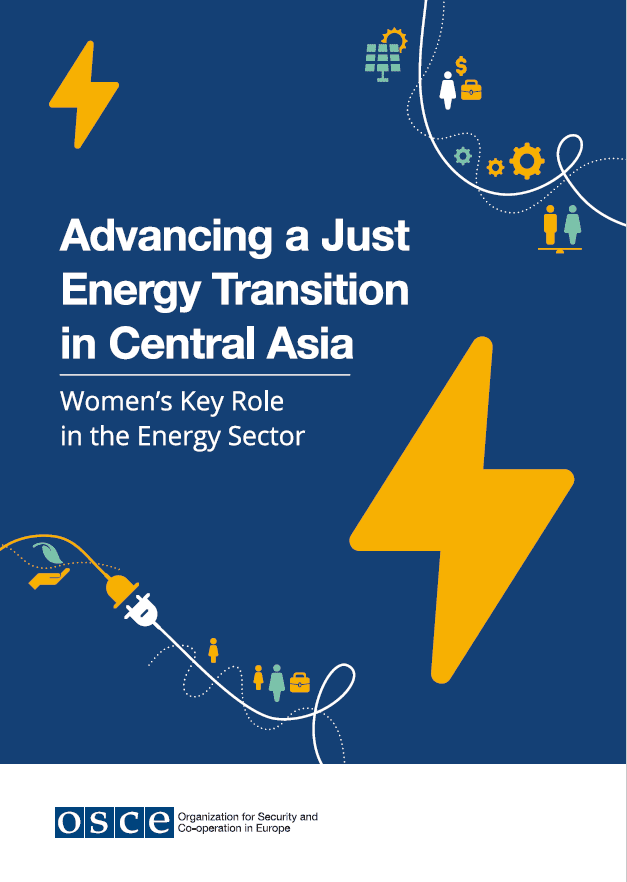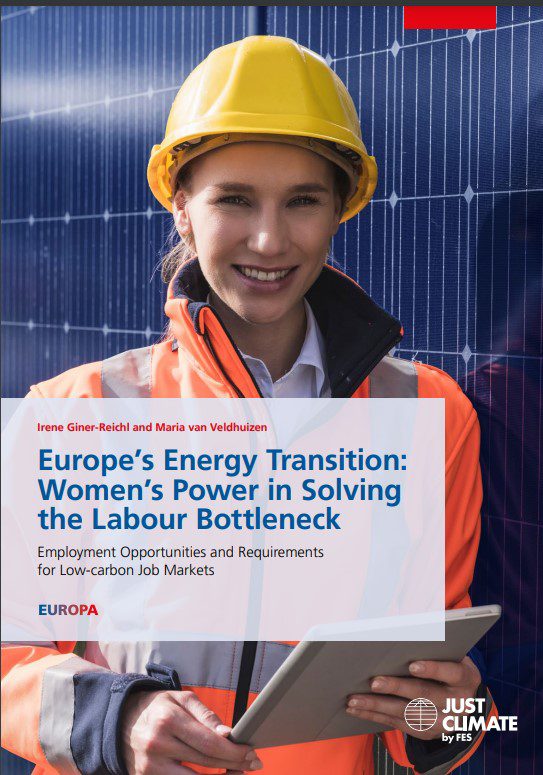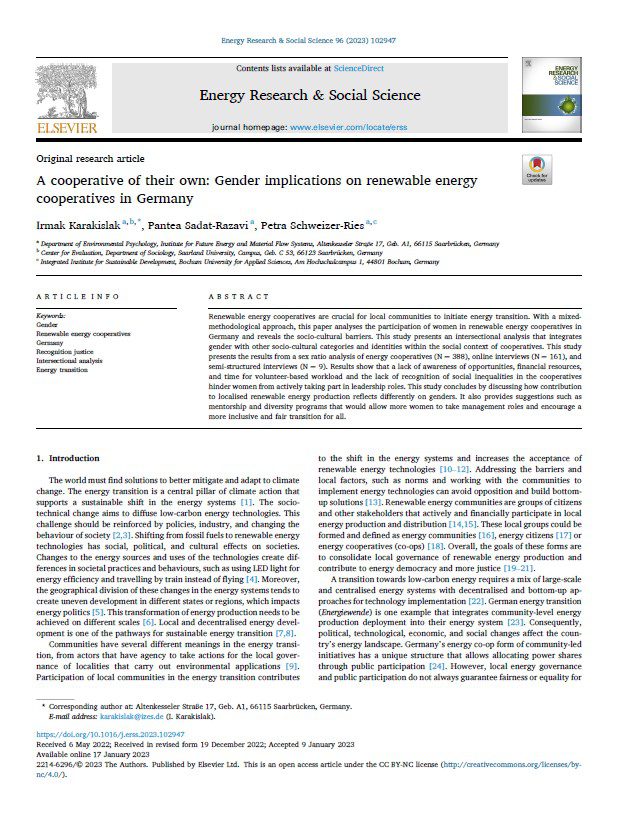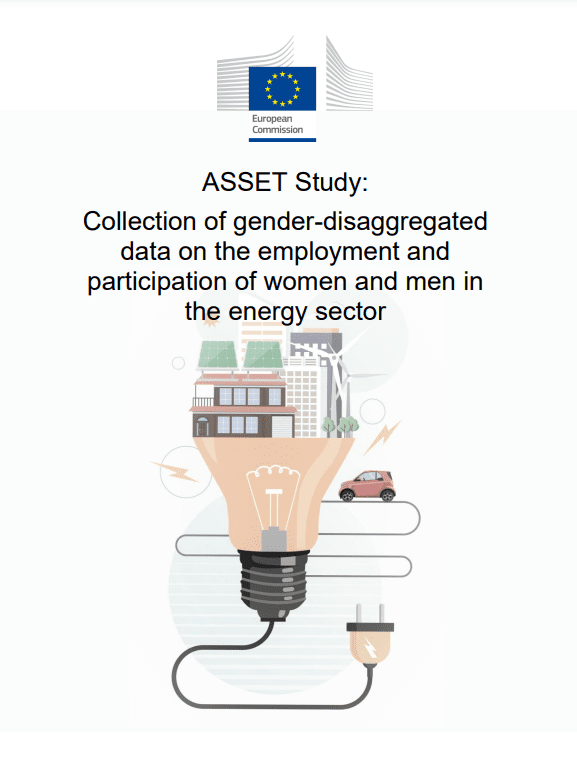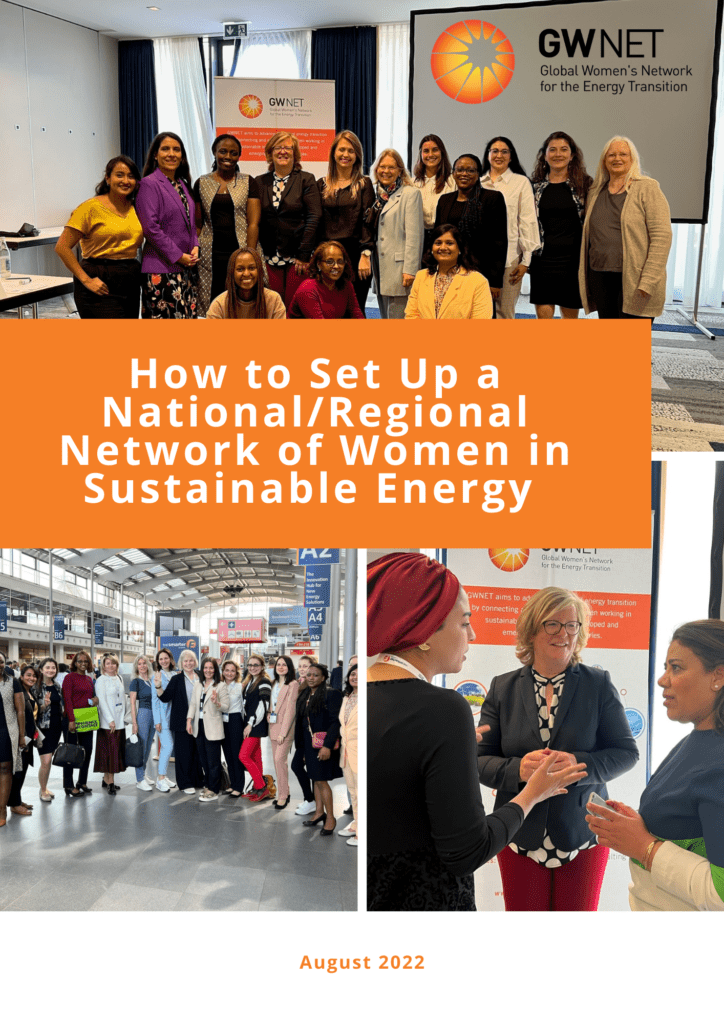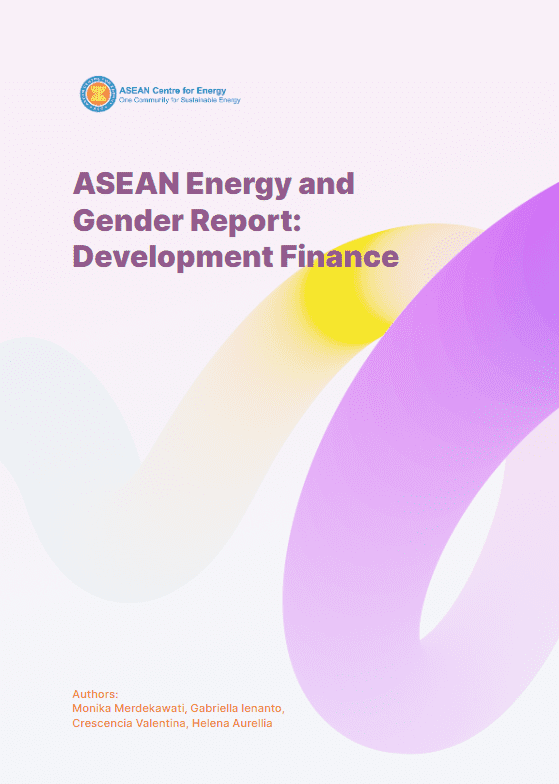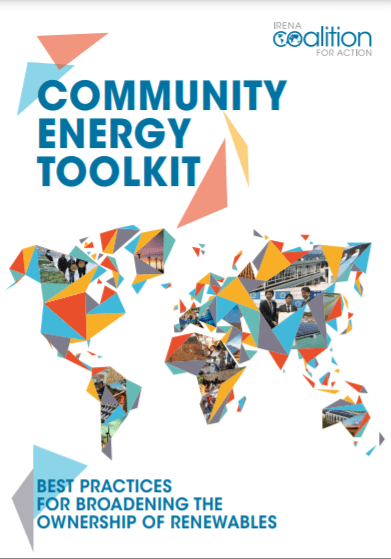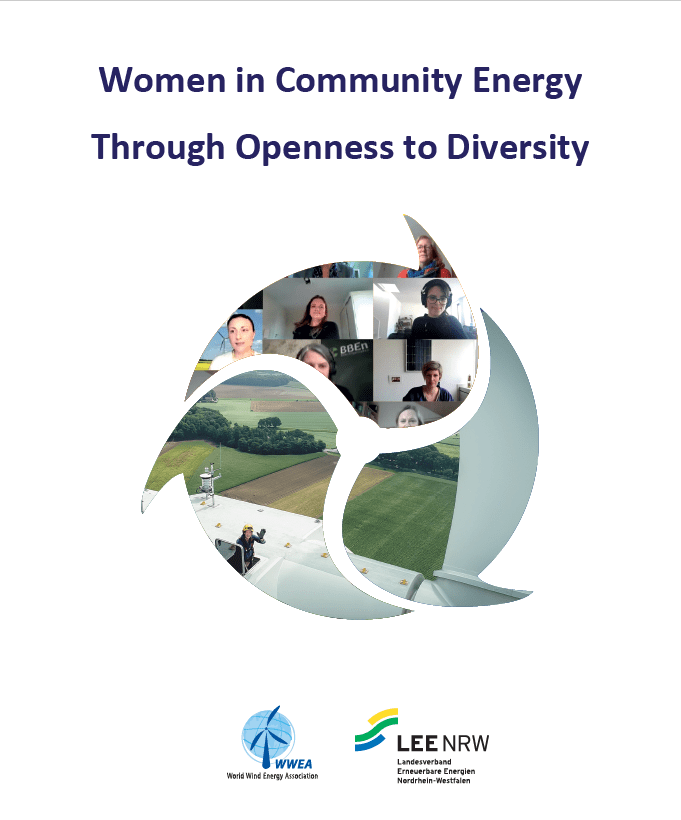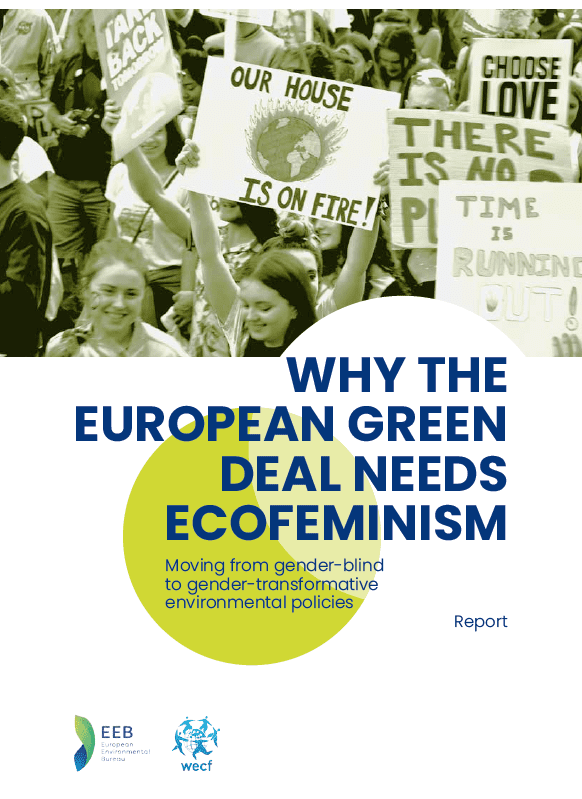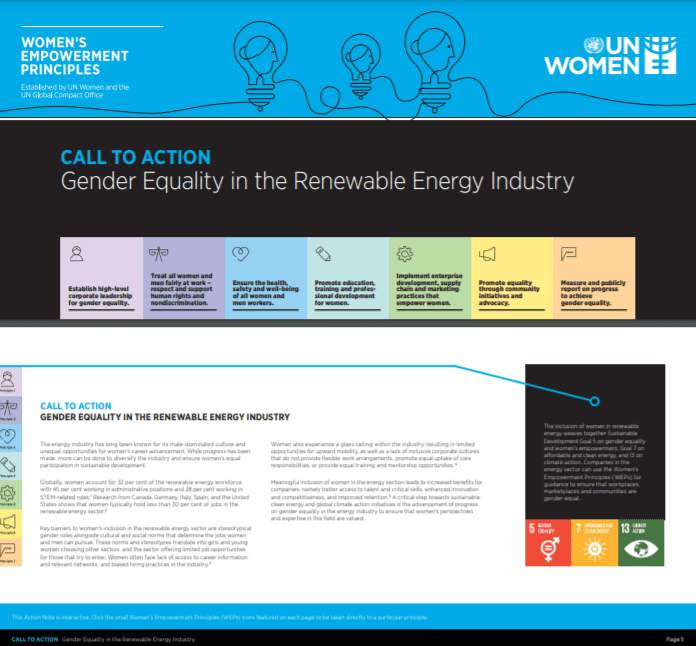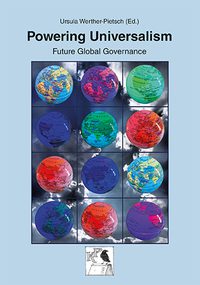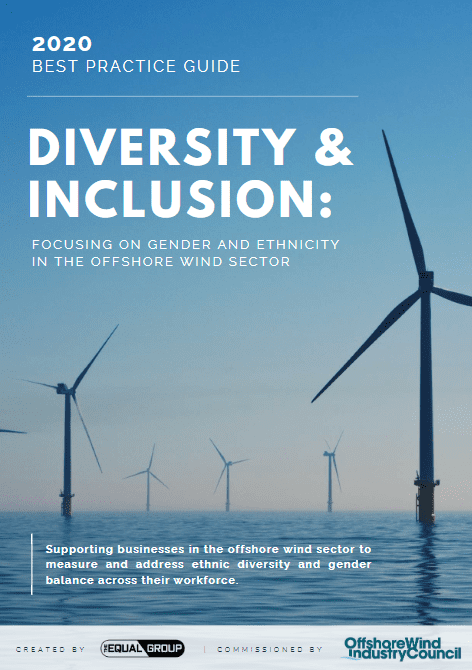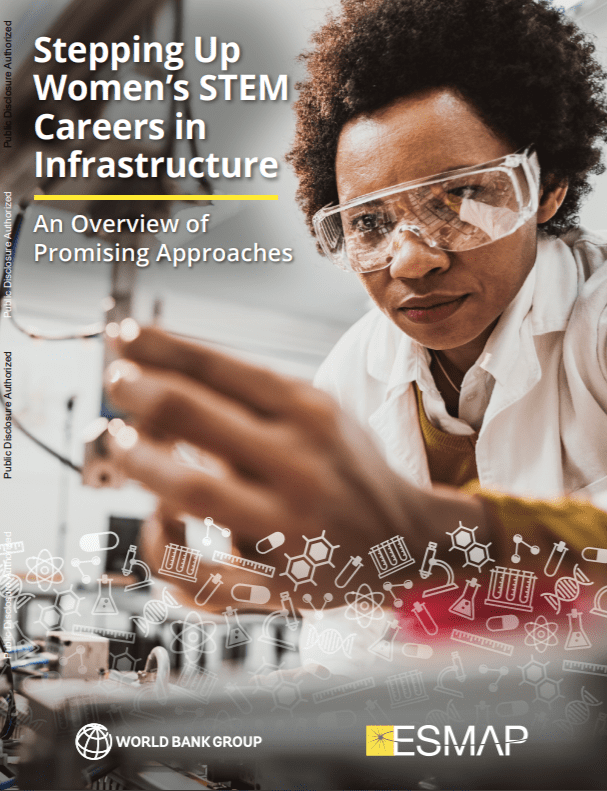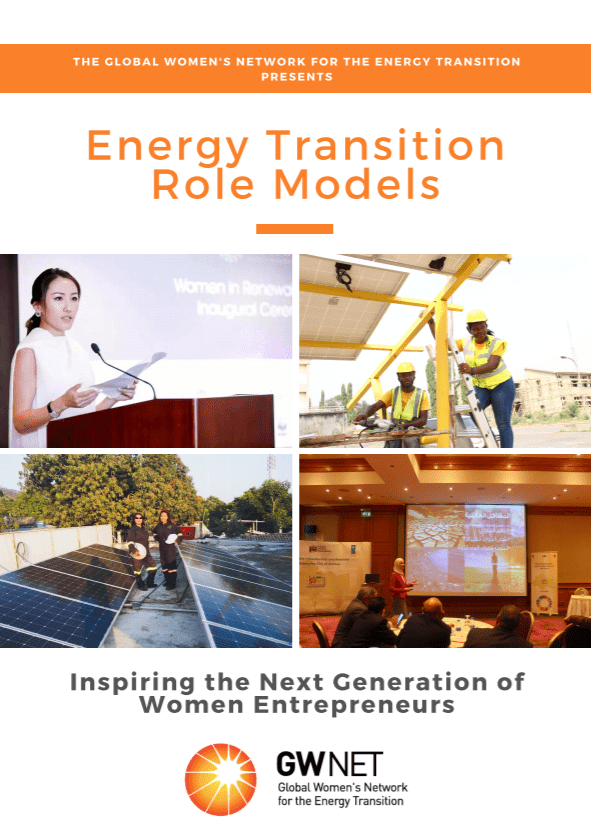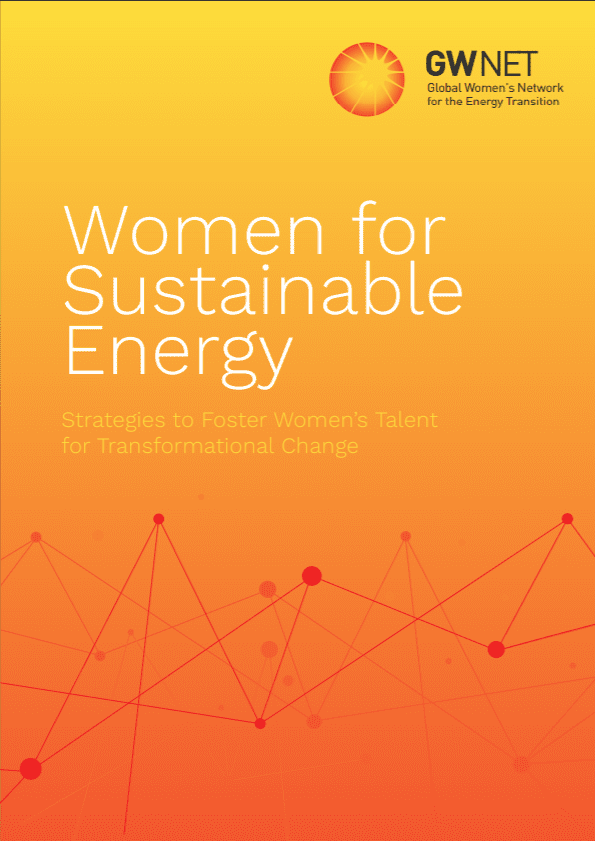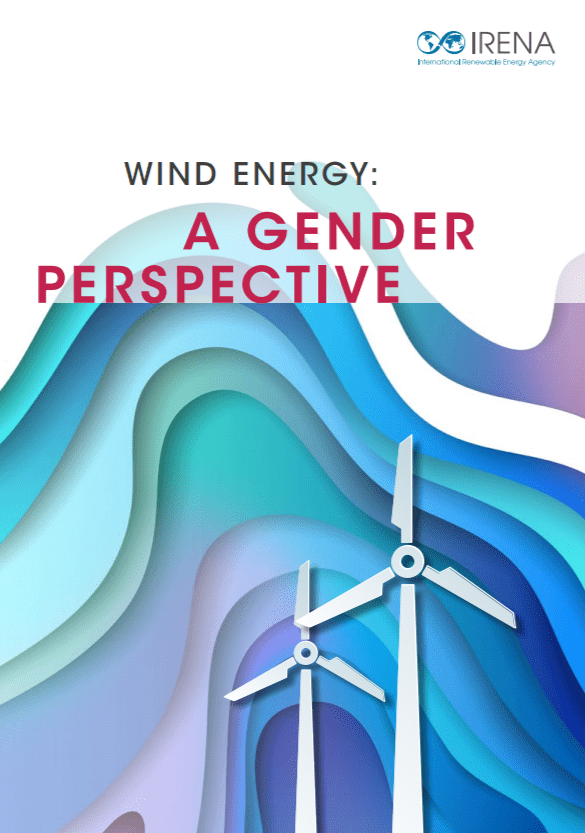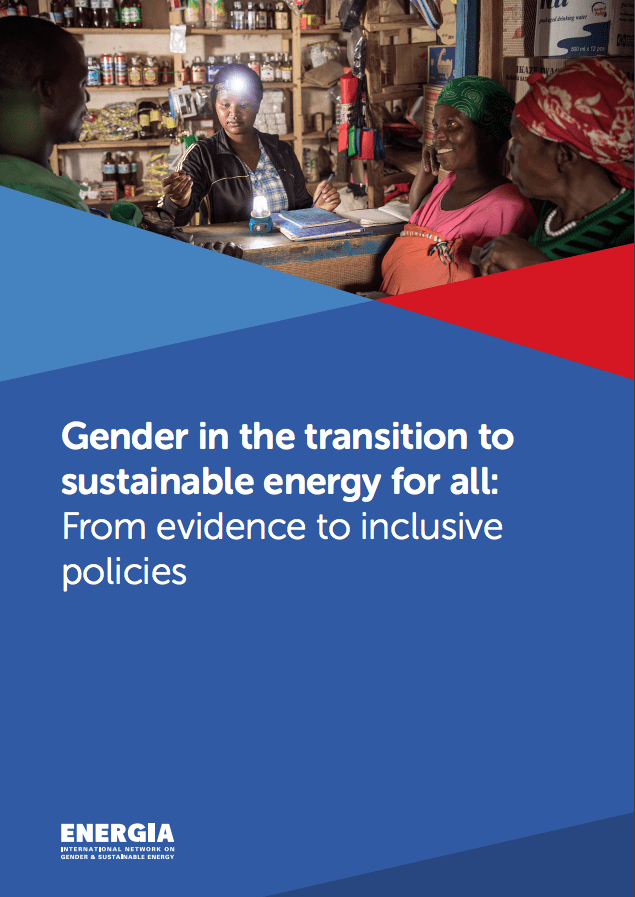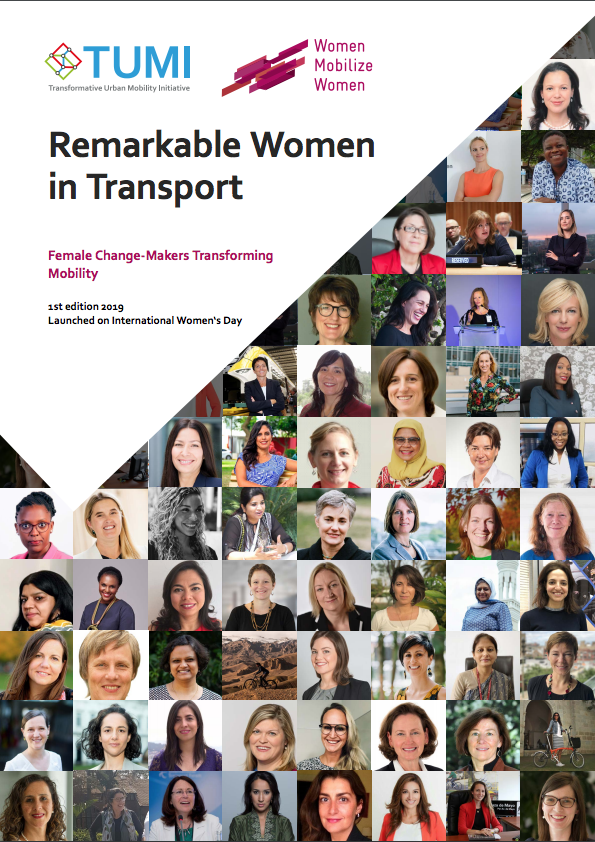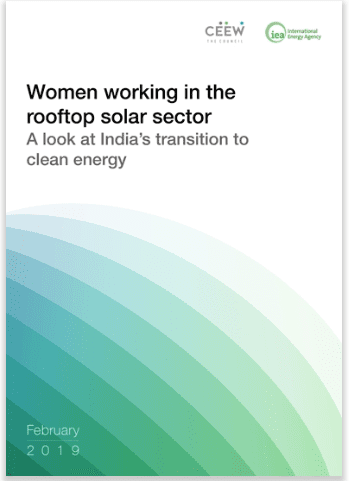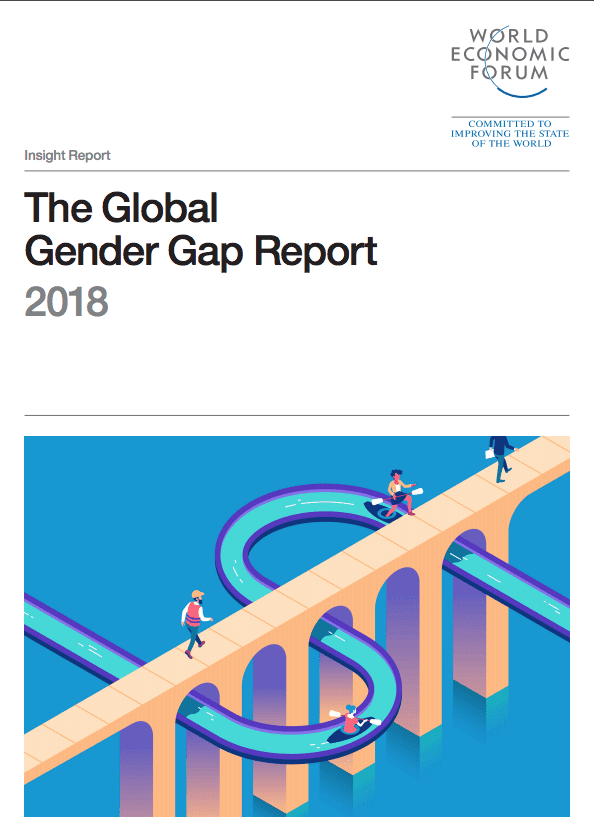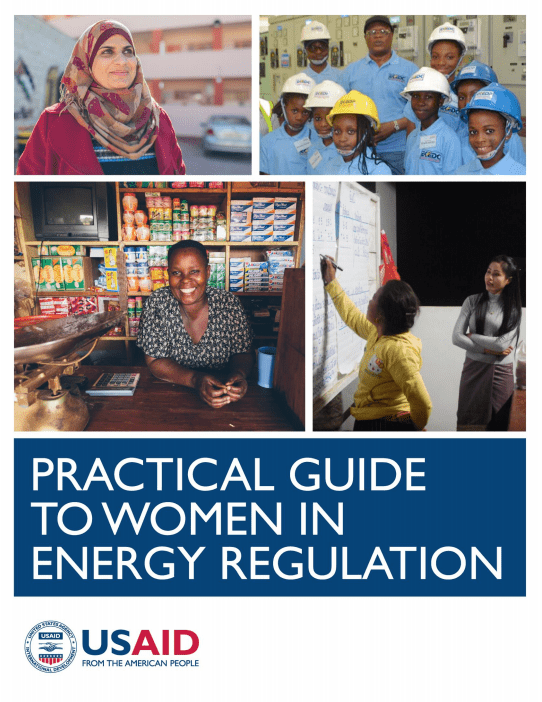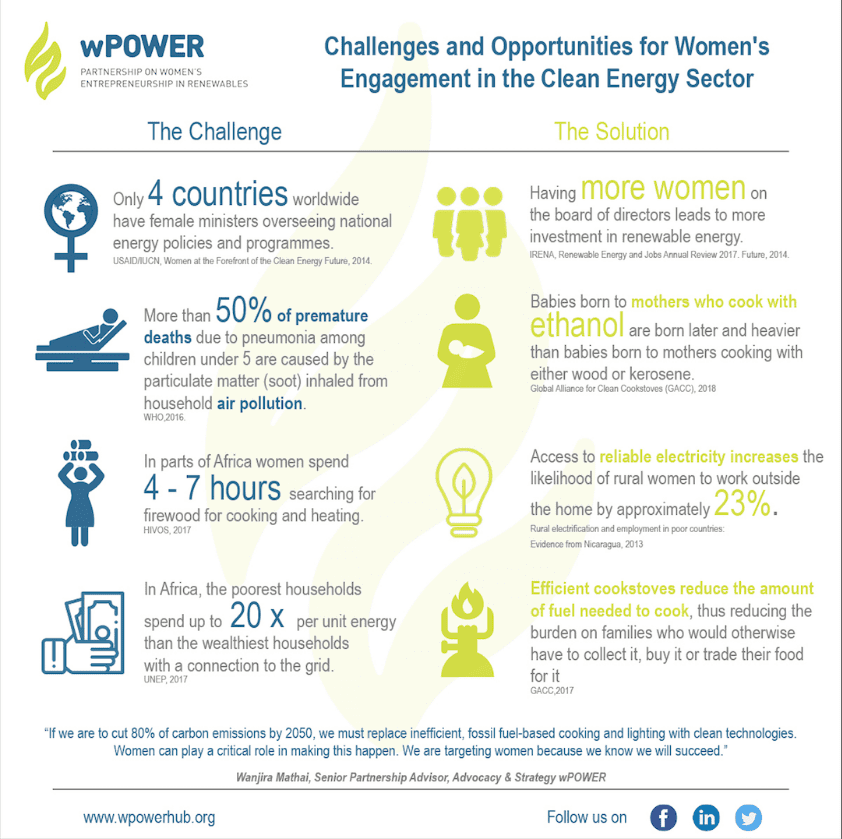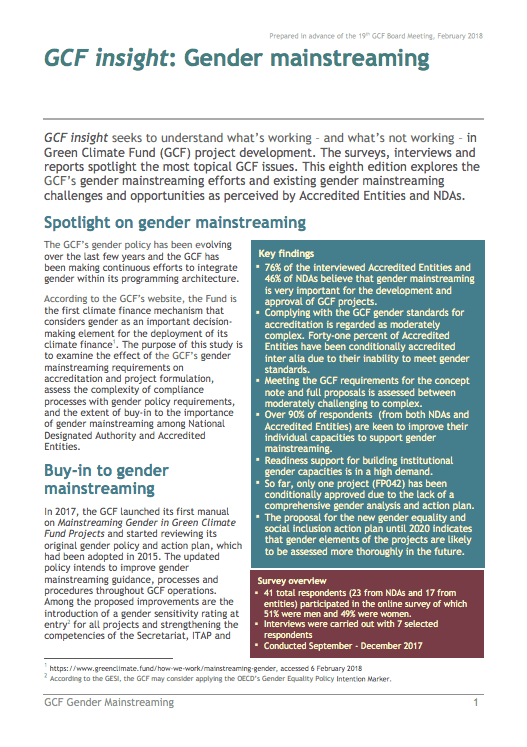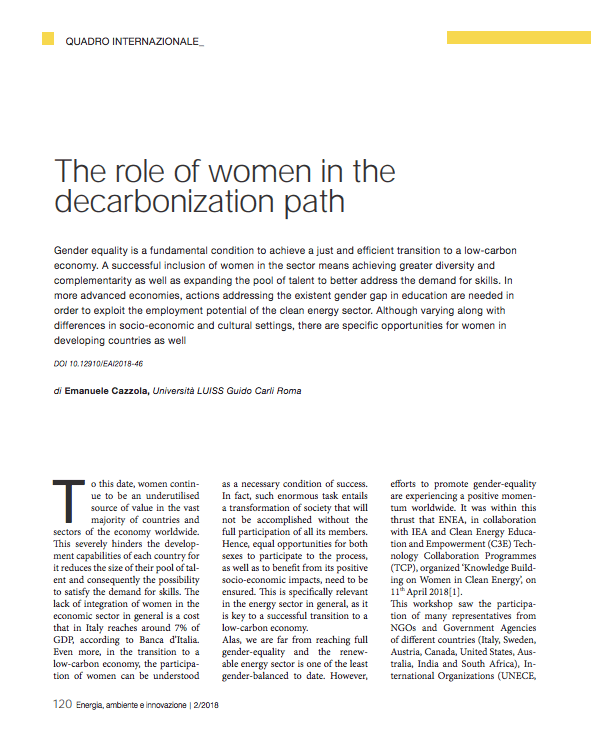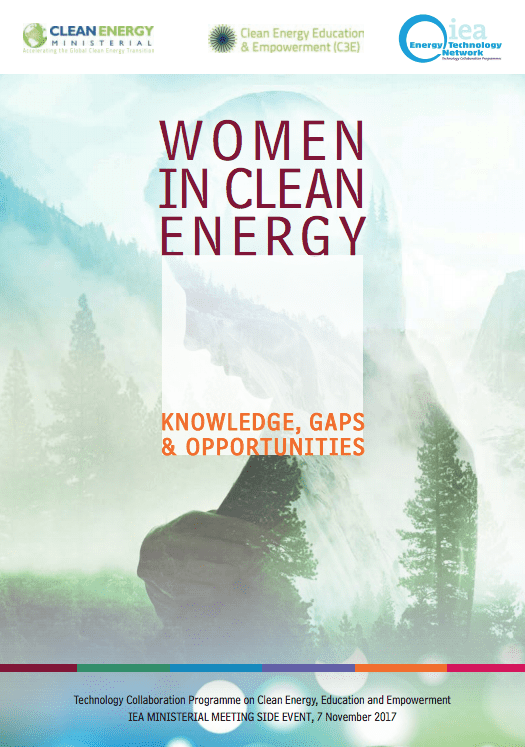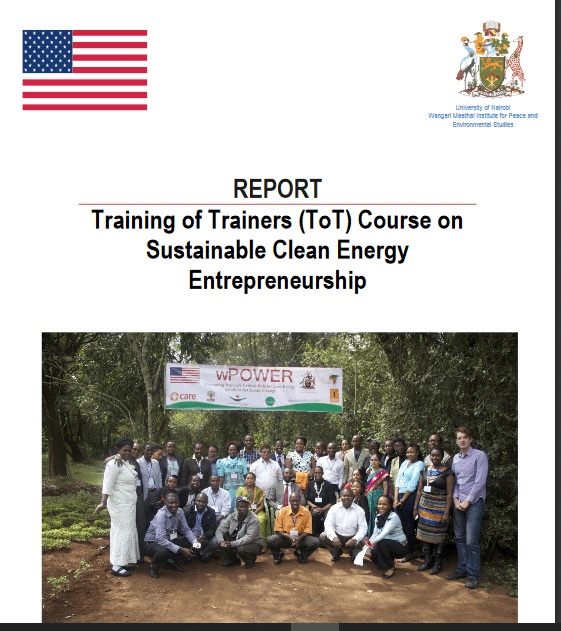The GWNET resource page is a collection of publications including reports, case studies, tools and guidelines, that present evidence for the global energy transition, including the vital role that women play in achieving this transition.
Search Resources
- All
- GWNET
- wPOWER Hub
The GWNET 2023 Annual Report
Since its founding, GWNET has been committed to advancing women’s careers in the global energy sector. Our 2023 Annual Report offers a detailed overview of GWNET’s work over the year and sheds light on steps we have taken to nurture female talent and encourage women’s participation in the energy industry. Throughout 2023, GWNET has collaborated with a number of […]
Advancing a Just Energy Transition in Central Asia: Women’s Key Role in the Energy Sector
The OSCE study “Advancing a Just Energy Transition in Central Asia – Women’s key role in the energy sector” assesses – through a gender lens – the potential socio-economic benefits of the energy transition in Kazakhstan, Kyrgyzstan, Tajikistan, Turkmenistan and Uzbekistan. It analyses the requirements for an appropriately skilled labour force and presents new projections of the job creation potential […]
Power with Full Force: Getting to gender equality in the hydropower sector
The hydropower sector is expected to employ 3.7 million individuals by 2050, but currently struggles with a significant gender gap, with women making up only 25% of its workforce. The industry must urgently address barriers to gender equality in order to access the broadest possible talent pool. Based on research by GWNET and the International Hydropower Association (IHA), the World […]
Gender Equality in the Sustainable Energy Transition
“UN Women and UNIDO have joined forces to produce this guide on “Gender equality in the sustainable energy transition”, which provides an overview of key and emerging issues in the gender and sustainable energy nexus, illustrated by research findings and case studies. This guide has been drafted with a view to supporting policymakers and development practitioners in government, the […]
How Small Hydropower Empowers Women, Closes Gender Gaps and Can Do More
“Empowering women and girls and closing gender gaps are critical to realizing sustainable development goals (SDG) and ensuring a good quality of life for all. This is reflected in SDG 5, which aims to ‘Achieve gender equality and empower all women and girls. SDG 5’s targets include ending all discrimination against women and girls, eliminating harmful practices, such as child, […]
Europe’s Energy Transition: Women’s Power in Solving the Labour Bottleneck
The energy transition is expected to generate millions of high-quality jobs around the world. This is viewed as a benefit, but it can also constitute a risk if the right workforce is not available. Skills shortages are now viewed as one of the main barriers to the energy transition in the European Union and several Eastern Neighbourhood countries. In the […]
Powering a Gender-Just Energy Transition
This working paper developed under the guidance of the GGKP Gender Expert Group “provides an overview of existing knowledge and strategies that aim to ensure no one is left behind during the energy transition. It examines challenges and opportunities for gender-just interventions supporting the energy transition. Best practice examples will highlight the role of various actors and how they have […]
Mainstreaming Gender in National Energy Policy and Plans
“Over the last three decades, the value of gender mainstreaming in policy, planning, and implementation has been increasingly recognized as a key strategy for accelerating progress towards gender equality. In Kenya, since the mid-2000s, government, civil society, international donors, and gender champions have collaborated to mainstream gender in the energy sector. A key milestone in this process was the 2019 […]
Gender Equality in Energy Industry Report
This report by the Turkish Women in Renewables and Energy Network (TWRE) was conducted for Deutsche Gesellschaft für international Zusammenarbeit (GIZ) GmbH under the Renewables and Migration (REMI) project implemented on behalf of the German Federal Ministry for Economic Cooperation and Development (BMZ). The report “furnishes, the results of the qualitative and quantitative analysis conducted with women in the energy […]
A Cooperative of their Own: Gender Implications on Renewable Energy Cooperatives in Germany
“Renewable energy cooperatives are crucial for local communities to initiate energy transition. With a mixed methodological approach, this paper analyses the participation of women in renewable energy cooperatives in Germany and reveals the socio-cultural barriers. This study presents an intersectional analysis that integrates gender with other socio-cultural categories and identities within the social context of cooperatives. This study presents the […]
The Lancet Commission on lessons for the future from the COVID-19 pandemic
“This Commission report aims to contribute to a new era of multilateral cooperation based on strong UN institutions to reduce the dangers of COVID-19, forestall the next pandemic, and enable the world to achieve the agreed goals of sustainable development, human rights, and peace that governments are committed to pursue as members of the UN. “ Download the report […]
Solar PV: A Gender Perspective
“The solar photovoltaic (PV) industry is the largest employer within the renewable energy sector, accounting for some 4.3 million jobs. If the solar business does not include a gender lens to incorporate more women, the industry is at risk of excluding a talent pool that is integral to its growth. This also undermines opportunities to improve the working environment for […]
ASSET Study: Collection of Gender-Disaggregated Data on the Employment and Participation of Women and Men in the Energy Sector
“In the fight for gender equality, the EU has made a considerable progress in the last decades by integrating gender perspectives in the policy-making. Substantial advancements were made in order to encourage women empowerment and guarantee equal treatment by legislation. The EU is determined to continue developing gender oriented policies. The New Gender Equality Strategy expressed the ambition to create […]
How to Set Up a National/Regional Network of Women in Sustainable Energy
GWNET is a global network aiming at empowering women working in sustainable energy in all parts of the world, at different career levels from both the public and the private sector. Over the last five years, the work of GWNET has grown to encompass global activities around advocacy, mentorship, and networking. The lessons learned over this period have been invaluable […]
Women’s Participation in the Renewable Energy Workforce in Sub-Saharan Africa
“In 2019, IFC, in partnership with the Government of Canada, launched the five-year Energy2Equal program to increase research and stimulate greater women’s participation in the energy sector. As part of Energy2Equal, IFC commissioned the international consulting firm, Econoler, to conduct a workforce study to assess the opportunities and challenges women face in working for private RE providers in SSA. This […]
ASEAN Energy and Gender Report: Development Finance
The “ASEAN Energy and Gender Report: Development Finance” report opens with a discussion of the interplay among gender equality, energy access and economic improvement, and serves as background behind the main research question. Following this is an outline of the funding received in ASEAN for energy and gender related programmes between 2010 and 2019, then data-driven recommendations for policymakers who […]
Community Energy Toolkit: Best Practices for Broadening the Ownership of Renewables
This white paper is part of a series on broadening the ownership of renewables. The Community Energy Toolkit: Best Practices for Broadening the Ownership of Renewables is developed by IRENA Coalition members who are part of the Working Group on Community Energy The participation and ownership by citizens or members of a defined community in a renewable energy project creates […]
Women in Community Energy Through Openness to Diversity
Women are significantly underrepresented in community energy in the German state of North Rhine-Westphalia. Among the many community energy entities active in the state, only 29% of shareholders are women, and they hold only 27% of the shares. While the numbers have increased compared with previous surveys, there is still no balanced gender ratio. Closer analysis shows that the […]
Co-benefits Knowledge Commons Employment: Renewable Energy, Employment Opportunities and Skill Requirements
Renewable energy technologies are job boosters: in 2020, the renewable energy sector employed at least 12 million people around the globe. Many governments worldwide have recognized that the energy pathway they choose will not only have an impact on combatting global warming and meeting climate goals, but also define the basis for their countries’ future development. Renewables can create […]
Green Employment for Women: Towards Gender-Inclusive Renewable Energy Careers
For too long, professional careers in the energy sector have been male-dominated. Until recently, women accounted for a mere 1 per cent of top management positions and 6 per cent of technical staff in the fossil energy sector globally (Baruah, 2017). In comparison, the renewable energy sector has seen an increase in women employment over the past decade. However, […]
Shedding Light on Female Talent in Lebanon’s Energy Sector
This policy brief aims to contribute to filling the knowledge gap and presenting a sex-disaggregated snapshot of the distribution of students across energy related higher education educational programs as well as the traditional Science, Technology, Education, and Math (STEM) fields, in tertiary education institutions across Lebanon’s different regions. The objective is to better understand the supply side of female […]
Gender in Energy Interventions in Fragile and Conflict Situations in the Middle East and North Africa Region
The Middle East and North Africa (MENA) is home to some of the most fragile situations and conflict-affected population in the world. With one in five people in the region living near conflict, nearly half of the economies of the MENA region are classified as fragile and conflict situations (FCSs). In such challenging contexts, the provision of basic and […]
Renewable Energy and Jobs – Annual Review 2021
Employment opportunities are a key consideration in planning for a low-carbon economy. Many governments have prioritised renewable energy development, firstly to reduce emissions and meet international climate goals, but also in pursuit of broader socio-economic benefits. Since its first report on Renewable Energy and Jobs, published in 2013, IRENA has carried out an annual update to its assessment of […]
Hiring for Equity in Clean Energy
Shortlist partnered with Open Capital Advisors with funding from FCDO and Shell Foundation to explore how SME energy companies in Kenya could increase the number of women who apply for roles and be retained in them, particularly digital ones. The findings in this research report provide practical (and largely zero cost) ways that growing companies can use language, marketing, […]
Why the European Green Deal Needs Ecofeminism
This report maps the gender gaps and opportunities in the EU’s flagship European Green Deal. It explores how, though gender issues affect environmental policies and vice-versa, they are not integrated into the European Green Deal. This publication also provides recommendations on how to move from gender-blind to gender-transformative environmental policies. These include intersectional and gender equal environmental objectives, moving […]
Call to Action: Gender Equality in the Renewable Energy Industry
This Call to Action showcases steps companies can take towards gender equality and women’s empowerment in the renewable energy sector. Companies in the energy sector can use the Women’s Empowerment Principles (WEPs) for guidance to ensure that workplaces, marketplaces and communities are gender-equal. The inclusion of women in renewable energy weaves together Sustainable Development Goal 5 on gender […]
Improving Women’s Productivity and Incomes Through Clean Energy in India
The study discusses the barriers faced by women micro-entrepreneurs, who are using clean energy-powered livelihood technologies, in accessing finance and policy support. It highlights the potential opportunities for integrating women into the renewable energy ecosystem. It examines how businesses can be scaled up to ensure greater participation of women as entrepreneurs, value chain partners, employees and customers. The study […]
Renewables 2021 Global Status Report
The share of fossil fuels in final energy has remained constant (around 80.2%) for the past decade, REN21’s Renewables 2021 Global Status Report reports. The world won’t reach net zero without a rapid scale-up of renewables, nor will it achieve its sustainable development goals. A fundamental shift in how renewables are mainstreamed in business and public activities is essential and […]
Solar Energy in Brazil: Which are the Barriers and Opportunities for Women Professionals in the Field?
This report presents an overview of the status of women’s participation in the Brazilian solar energy market. Data was collected on professionals employed in the solar sector – specifically those available in the Annual Social Information Report (Rais) – and primary data on women working directly or indirectly in the solar sector, via an online questionnaire, with the participation of […]
Energy Security of the Future
This article written by GWNET President, Irene Giner-Reichl, answers two major questions: How is SDG 7 implementation advancing? What does it take to get to secure and sustainable energy systems? The article forms a chapter in the book entitled “Powering Universalism – Future Global Governance”, edited by Ursula Werther-Pietsch. Download the article here: Energy Security of the Future
Women in Wind Submission to UNFCCC for Gender and Climate Change
The Global Wind Energy Council (GWEC) and the Global Women’s Network for theEnergy Transition (GWNET), as partners and organizers of the Women in Wind Global Leadership Program, welcome the opportunity provided by the UNFCCC to submit their views on Gender and Climate Change, as part of the enhanced Lima work programme on gender and its gender action plan. Download the […]
Applying Gender Lenses to the Interlinkages and Synergies Between SDGs
The persistence of gender inequalities can be better understood if gender is thought of as an institutionalised system of differences between women and men that advantages men over women (in material resources, power, status, authority, etc.), and which operates as the “invisible hand” to maintain the status quo. In the context of Agenda 2030, this means that not one [...]
Diversity & Inclusion: Focusing on Gender and Ethnicity in the Offshore Wind Sector
This guide has been put together to provide guidance to companies operating within the offshore wind industry, with a view to helping these companies to improve their practices in relation to equality, diversity and inclusion (EDI). EDI can be a complex endeavour, but when done in the right way EDI can significantly improve an organisation’s outputs and deliver a [...]
Women’s EmPOWERment Report
Women emPOWERment looks at women's experiences working in the renewable energy sector. A closer look at the available statistics shows that a majority of the positions filled by women are in administration, rather than in leadership or science and engineering roles, meaning major decisions are mostly made by people from a narrow demographic. Women who are working in the energy [...]
Getting to Gender Equality in Energy Infrastructure
Getting to Gender Equality in Electricity Infrastructure: Lessons from Electricity Generation, Transmission, and Distribution Projects sets out to examine the social and gender footprint of large-scale electricity generation, transmission, and distribution projects to establish a foundation on which further research and replication of good practices can be built. The main impact pathways analyzed are access to land and labor markets, […]
Getting to Gender Equality in the Geothermal Energy Sector: Road to Sustainability
Although geothermal energy is globally recognized as a clean and reliable source of heat and electric power its development can inadvertently lead to adverse outcomes that disproportionately disadvantage women. Based on good practices and lessons learned, this report introduces ways that geothermal projects can mitigate risks and pursue opportunities to address gender gaps within the project cycle. It outlines the […]
Stepping Up Women’s STEM Careers in Infrastructure: Summary Note: Entry Points for World Bank Project Teams Volume 3
Stepping Up Women’s STEM Careers in Infrastructure: Summary Note: Entry Points for World Bank Project Teams provides a brief overview of some of the findings from an extensive literature review, a global stocktaking exercise, key informant interviews, and five case studies (featured in Volume 1 and 2) in order to provide World Bank Group project teams with insights that they […]
Stepping Up Women’s STEM Careers in Infrastructure: Case Studies Volume 2
Composed of five case studies that describe a variety of contexts in which measures are being implemented to attract, recruit, retain, and advance women in STEM roles in the infrastructure sectors across Ethiopia, the Lao People’s Democratic Republic (Lao PDR), North Macedonia, Panama, and Solomon Islands. The first three case studies profiled in this document focus specifically on recruitment, retention, […]
Stepping Up Women’s STEM Careers in Infrastructure: An Overview of Promising Approaches | Volume 1
Volume 1 | Stepping Up Women’s STEM Careers in Infrastructure: An Overview of Promising Approaches: Distills the findings from an extensive literature review, a global stocktaking exercise, key informant interviews, and five case studies in order to provide World Bank Group project teams with insights that they can use to support women’s STEM careers in infrastructure at each stage of […]
Frauen. Energie. Wende!
The energy transition can only be implemented efficiently and at the required speed with the equitable participation of women, all genders and the entire citizenship. This publication -“Frauen.Energie.Wende! – Warum wir eine geschlechtergerechte Energiewende brauchen” – shows why. The publication has been published in German by Bündnis Bürgerenergie and WECF (Women Engage for a Common Future). Download the report […]
More equal sharing of care would reduce workplace gender inequality
There is a direct link between the unequal division of unpaid care in households and gender inequality in the labour market, according to a study by the European Institute for Gender Equality (EIGE). Across the EU, the bulk of unpaid care work is done by women, with 92% providing unpaid care several days a week – as opposed to 68% […]
Women Entrepreneurs as Key Drivers in the Decentralised Renewable Energy Sector: Best Practices and Innovative Business Models
Affordable, reliable and sustainable energy (SDG-7) and gender equality (SDG-5), are key drivers for development and economic growth. While SDG-7 is necessary to power productive activities and enable socio-economic development, SDG-5 further catalyses progress, as women are more likely to reinvest their earnings in productive activities and vital services within their communities. To achieve universal access by 2030, new energy […]
Gender and Energy at Center Stage in COVID-19 Battle: Powering a More Gender-Equal Recovery
The COVID-19 crisis is putting a tremendous strain on the global economy and public health systems, as well as on the energy supply and access systems that support them. It highlights and magnifies inequalities and the multiple forms of discrimination that women and girls face, including in the energy sector. ENERGIA and its partners have gathered and analyzed information from the […]
Women in the Workplace 2020
Women in the Workplace is the largest comprehensive study of the state of women in corporate America. In 2015, McKinsey & Company and LeanIn.Org launched the study to help companies advance diversity in theworkplace. Between 2015 and 2019, close to 600 companies took part in the study, and more than a quarter of a million people were surveyed on their […]
Best Practices for Gender Diversity in Talent Recruitment
The ‘Best Practices for Gender Diversity in Talent Recruitment’ guide serves as a resource to advance gender equality in the wind industry and attract top talent and skills, with the end-goal of building a dynamic and inclusive workforce that can drive the global energy transition. As governments around the world seek a green recovery from the COVID-19 crisis and look […]
Renewables 2020 Global Status Report
The REN 21 Renewables 2020 Global Status report provides a comprehensive overview of global developments in renewable energy markets, investments and policies in 2019. Some of the key findings from the report include: There was only a moderate increase in the overall share of renewables in total final energy consumption (TFEC). As of 2018, modern renewable energy accounted for an […]
The Role of Appliances in Achieving Gender Equality and Energy Access For All
A holistic energy access approach, taking into account the role of appliances, is needed if we are to achieve access to energy for all (Sustainable Development Goal 7) and gender equality (Sustainable Development Goal 5) by 2030. Appliances can reduce drudgery and save time in performing household tasks. They can also be transformative from an income generation perspective. This briefing […]
Energy Transition Role Models: Inspiring the Next Generation of Women Entrepreneurs (Brochure)
GWNET’s video series “Energy Transition Role Models: Inspiring the Next Generation of Women Entrepreneurs” showcases portraits of remarkable women entrepreneurs in sustainable energy who are working across different disciplines and countries, with the goal to give female leadership visibility and thereby inspire and encourage others – especially young female students and graduates – to follow suit. The video series is […]
Women for Sustainable Energy – Strategies to Foster Women’s Talent for Transformational Change
GWNET’s first study “Women for Sustainable Energy – Strategies to Foster Women’s Talent for Transformational Change” contains an overview of women’s current participation in the sustainable energy workforce in developed and emerging economies, the benefits of diversity and inclusion in the workplace, industry interviews, good practice examples and recommendations for a more gender-diverse sector. Download the executive summary here: Women […]
GWNET Study: Technical Working Document
The Technical Working Document accompanies GWNET’s study “Women for Sustainable Energy: Strategies to Foster Women’s Talent for Transformational Change” and contains additional information on gender study-related context, all industry interview quotes and the entire contents of the structural and environmental analysis. Download the technical working document here: GWNET Study – Technical Working Document
Wind Energy: A Gender Perspective
Wind energy, like other parts of the global energy industry, remains largely male-dominated. Yet opportunities exist to improve the gender balance, make greater use of women’s skills, and entrench wind power as part of an inclusive and sustainable energy system for the future. This brief tracks the presence of women across the wind energy value chain. Based on a survey […]
Best Practices for Gender Diversity at Industry Events
The ‘Best Practices for Gender Diversity at Industry Events’ guide provides insights on what meaningful inclusivity can look like at events, going beyond quotas to mainstream diversity in key aspects of events. By implementing these best practices, events can address unconscious bias and unequal representation, positively impact corporate culture and encourage greater gender diversity in the wind energy sector. This […]
Advancing Gender Diversity in Canada’s Electricity Sector: A Compendium of Success Stories
The Leadership Accord on Gender Diversity is a public commitment by Canadian employers, educators, unions and governments to promote the values of diversity and inclusion within their organisations. Download the accord here: Leadership Accord on Gender Diversity
Communications & Gender Checklist: Things to Consider
This short guide outlines tips for how to apply a gender and inclusion lens while developing and reviewing communications materials. The intention is to provide basic guidance to a group of impact investors working as part of the “Investing in Women” initiative supported by Australian Aid’s DFAT program. It aims to serve as a starting point for thinking more deeply […]
Status Report on Gender Equality in the Energy Sector
The first important step to change is having a solid understanding of the current landscape. At present, there is limited gender-disaggregated data regarding the energy sector and inadequate knowledge about how to make the sector more gender-balanced. It is critical for countries and organizations to join efforts to improve systematic data collection in order to understand trends and identify actions […]
Equal by 30 Signatory Stories – Balance Means Business
The Equal by 30 campaign asks companies and governments to endorse principles of equal pay, equal leadership and equal opportunities, and to take concrete action to close the gender gap in the clean energy sector. Empowering and increasing the representation of women in the energy sector is essential in the transformation to a clean energy economy. Growing evidence demonstrates that […]
Tackling Global Challenges to Equality and Inclusion Through the Gender-Responsive Implementation of the 2030 Agenda for Sustainable Development
The theme of the 2019 High-level Political Forum On Sustainable Development (HLPF) “Empowering people and ensuring inclusiveness and equality” invites debate on barriers to as well as strategies for transformative and lasting change. As a direct contribution to the HLPF and to discussions on the implementation of the 2030 Agenda more broadly, the United Nations Entity for Gender Equality and […]
Gender Inclusion in Hiring in India
This learning report addresses the need to think about gender inclusion when hiring staff in India. The report talks about the concern in India about lost economic growth and development benefits due to low female labour force participation. The low rate seems to be explained in part by challenges in finding appropriate work: a large gender gap in the unemployment rate—particularly among educated, urban women […]
The Renewables 2019 Global Status Report (GSR 2019)
Renewable energy is increasingly powering the world, but erratic policy making is holding the sector back from its potential contribution to cutting carbon pollution and meeting climate and development targets, according to REN21’s Renewables 2019 Global Status Report (GSR). The report confirms that for the fourth consecutive year, more renewable power capacity was installed than fossil fuel and nuclear […]
Renewable Energy and Jobs – Annual Review 2019
The widespread adoption of renewable energy technologies creates employment opportunities up and down the supply chain. Worldwide, the sector employed 11 million people at the end of 2018, according to this sixth edition of the Renewable Energy and Jobs series. More countries were manufacturing, trading and installing renewable energy technologies. While leading markets like China, the United States and the […]
Tracking SDG7: The Energy Progress Report 2019
Tracking SDG7: The Energy Progress Report 2019 shows that despite the progress, reaching the remaining unserved people, including those connected to frail and overburdened urban grids, as well as displaced people, and hard-to-reach locations, will be challenging. An estimated 650 million people will be left without electricity access in 2030. The report tracks global, regional and country progress on […]
Gender in the transition to energy for all: From evidence to inclusive policies
The new report released by ENERGIA, in collaboration with nine research teams, gathers the empirical evidence related to the benefits that taking a gender approach has for energy access interventions, with the aim to translate this evidence into recommendations for energy policy and practice. Reforming the energy sector in a more gender-sensitive way through obtained evidence is a pivotal step […]
Gender and Environment Statistics: Unlocking Information for Action and Measuring the SDGs
Gender equality and women’s empowerment are globally recognised priorities, matters of fundamental human rights, and prerequisites for sustainable development (IUCN, 2018; World Economic Forum, 2015). Understanding the gender-environment nexus is not only key to understanding social and environmental inequities and barriers to sustainable development, but to unlocking options for transformative action, as well. Data gaps at this nexus, however, are […]
Remarkable Women in Transport: Female Change-Makers Transforming Mobility
Transport is often seen as gender neutral – a road or bus system will benefit all equally. But in fact, it’s not! Women and men have different expectations, needs and constraints for using transport. Without considering these, planning and projects do not adequately meet the demands of a large part of their users. Thus, transport is neither efficient nor sustainable. […]
Advancing Gender in the Environment: Gender-Responsive Geothermal Generation
This case study highlights the various ways in which LaGeo—a geothermal energy utility in El Salvador—developed strategies throughout its corporate mission and operations to adhere to national laws on gender equality and national development goals, resulting in environmental, social, and women’s empowerment outcomes, as well as positive impacts on business outcomes. This case study shows how utilities can increase gender […]
Women Working in the Rooftop Solar Sector
India’s rooftop solar targets represent a major opportunity for sustainable development and for women’s employment. While India has shown a strong commitment towards a clean energy transition through its renewable electricity installation target for 2022, deployment of rooftop solar technology has been slow. With the potential to create a large number of jobs in general, the rooftop solar sector also […]
Supporting Last-Mile Women Energy Entrepreneurs
Supporting last-mile women energy entrepreneurs: What works and what does not, shows ENERGIA’s four-year journey (2014-2018) to create, support, strengthen and upscale women-centric energy enterprises that sell safe, reliable and affordable energy solutions to low-income consumers in under-served areas. This publication is an effort at self-reflection, undertaken collectively by the Women’s Economic Empowerment (WEE) programme coordinator, the partner organizations and the ENERGIA International […]
Gender Equality as an Accelerator for Achieving the SDGs
Evidence collected in this paper shows that gender equality is critical to achieving a wide range of objectives pertaining to sustainable development, from promoting economic growth and labour productivity, to reducing poverty and enhancing human capital through health and education, attaining food security, addressing climate change impacts and strengthening resilience to disasters, and ensuring more peaceful and inclusive communities. Based […]
Renewable Energy: A Gender Perspective
Renewable Energy: A Gender Perspective provides new insights on women’s role in renewable energy employment and decision-making globally. This key report by the International Renewable Energy Agency (IRENA) aims to help fill the knowledge gap in this field. Based on a ground-breaking, first-of-its-kind online survey combined with in-depth research, the study highlights the importance of women’s contributions in the energy […]
The Global Gender Gap Report 2018
Gender parity is fundamental to whether and how economies and societies thrive. Ensuring the full development and appropriate deployment of half of the world’s total talent pool has a vast bearing on the growth, competitiveness and future-readiness of economies and businesses worldwide. The Global Gender Gap Report benchmarks 149 countries on their progress towards gender parity across four thematic dimensions: […]
Just Good Investing: Why Gender Matters To Your Portfolio And What You Can Do About It
The evidence is in and it’s clear — gender equity is good for investment, good for businesses, and good for society. You may have seen research that shows that the financial returns of companies with three or more women on their board are significantly higher than companies that have no women on their board. Or you may have read that inclusive work environments […]
Best Practices for Education and Training to Advance Women’s Energy Entrepreneurship
A collaborative literature review project was conducted with Johns Hopkins University (JHU), Babson College and International Center for Research on Women. This project resulted in a policy brief “Best practices for education and training to advance women’s entrepreneurship”. The primary objectives were to collect evidence 1) that women’s energy entrepreneurship advances energy access for all 2) that women’s energy entrepreneurship […]
Best Practices in Accelerating Access to Clean Household Energy: A Collection of Evidence from wPOWER Partners
This report documents evidence-based best practices in the acceleration of household clean energy access, and highlights the involvement of women across the clean energy value chain. It also contains case studies by 34 wPOWER partner organizations who are working to close the gap between energy access, women’s empowerment and entrepreneurship. While these organizations tackle global challenges such as reducing indoor […]
Women in Energy Global Study
The Women in Energy Global Study by NES Global Talent and Energy Jobline is a global workforce report, focusing specifically on the energy and engineering sectors. A total of 1200 female professionals completed the initial survey, and respondents were asked a total of 20 questions. The study provides insights into the female workforce’s aims from a career and what they […]
LivelyHoods Case Study: Where Are the Women in the Energy Sector?
This case study will explore the training, distribution and support model employed by LivelyHoods, highlighting the accomplishments, challenges and lessons learned along the way. The goal is to provide evidence of the vital role of women in clean energy initiatives, allowing for the prioritisation of their involvement across the household clean energy value chain. Download the resource here: LivelyHoods Case […]
Women in Energy
wPOWER carries out its work by employing three pillars in a multifaceted approach to enhance women’s integration in the renewable energy value chain. These pillars are: i) building evidence ii) sharing best practice iii) advocacy. In addition to these pillars the organisation uses community training as a strategy to build women networks. This case study explores the descriptions of the goals and expected outcomes […]
Best Practices In Monitoring Indicators
The wPOWER Hub authored position paper “Best Practices in Monitoring Indicators: Standardization of Methodologies,” provides an overview of variances observed in calculations of outcome indicators among different partner organizations. The paper elaborates on wPOWER’s recommendation to have partners use harmonised methodologies to enhance accuracy and consistency in indicator reporting. Download the resource here: Best Practices in Monitoring Indicators
A Business-First Approach to Gender Inclusion
The rapidly growing clean energy sector represents an opportunity for businesses and for women. This paper outlines one piece of the gender and energy nexus, from the perspective of SMEs who are keen to think about gender in new ways. Download the paper here: A Business-First Approach to Gender Inclusion
Practical Guide to Women in Energy Regulation
This guide was developed to support energy regulators in low- and middle-income countries in promoting gender equality. The document focuses on the inclusion of women in multiple facets of energy regulation, including employment, energy regulatory policy, and energy infrastructure projects. In its first section, the guide provides an overview of the energy regulatory frameworks and opportunities to advance gender equality […]
From Advocacy To Action: Toolkit On Gender Advocacy In Clean Energy
To create a cohesive and targeted advocacy agenda that strengthens women’s involvement in clean energy access, wPOWER and its partners have developed this toolkit to highlight key calls to action. The toolkit focuses on five key areas for increasing involvement of women in clean energy initiatives for accelerated energy access. These key areas include: Advancing women’s participation in clean energy […]
BURN Manufacturing Case Study: Where Are the Women in the Energy Sector?
This case study explores the gender distribution in production at BURN Manufacturing, which stands at 54% women and 46% men employed. The case study provides an overview of the challenges, accomplishments and lessons learned in creating and maintaining a gender-inclusive workforce in the cookstoves manufacturing sector. Download the resource here: Burn Case Study
Renewable Energy and Jobs: Annual Review 2018
This fifth edition of Renewable Energy and Jobs – Annual Review provides the latest available estimates and calculations on renewable employment. It represents an ongoing effort to refine the data, including IRENA’s own methodology. Global numbers are based on a wide range of studies with varying methodologies and uneven detail and quality. Download the resource here: Renewable Energy and Jobs- […]
Accelerating SDG7 Achievements
The Global Agenda for Accelerated SDG 7 Action is presented as a foundation for concerted action by all stakeholders in support of achieving SDG 7. It presents a set of priority actions to be taken by stakeholders to accelerate the achievement of SDG 7, based on the analysis in the SDG 7 Policy Briefs developed by the multi-stakeholder SDG 7 […]
Levers of Change
The report, Levers of Change: How Global Trends Impact Gender Equality and Social Inclusion in Access to Sustainable Energy, provides powerful evidence of how women are often not given an equal chance to take advantage of some of the key trends. For example, while solar off-grid and mini-grid systems are often the lowest-cost option for closing energy access gaps in […]
Wisdom Innovations Case Study: Where Are The Women In The Energy Sector?
The case study explores a six-month project undertaken by Wisdom Innovations between October 2016 – April 2017, which aimed to increase the number of women accessing improved cookstoves through a flexible and affordable payment plan. This case study provides an overview of the project with a focus on inclusion of women – its challenges, accomplishments, and lessons learned. Download the […]
Infographic On Challenges And Opportunities For Women’s Engagement In The Clean Energy Sector
This is an Infographic by wPOWER on Challenges and Opportunities for women’s engagement in the clean energy sector. Download the resource here: Infographic On Challenges And Opportunities For Women’s Engagement In The Clean Energy Sector
Advancing Gender in the Environment: Making the Case for Gender Equality in Large-Scale Renewable Energy Infrastructure Development
This brief provides an overview of the gender dimensions of planning and building large-scale renewable energy infrastructure, such as hydropower and geothermal plants, solar arrays and wind parks with the capacity to generate 10 MW or more. While the practices and lessons highlighted can be applied to energy infrastructure projects in general, this brief focuses on renewable energy infrastructure projects […]
Advancing Gender in the Environment: Making the Case for Women in the Energy Sector
This brief provides an overview of the role of women in the formal energy sector. It presents evidence that women’s equal participation in the sector will result in measurable benefits, including increased returns on investments and stronger development outcomes. Additionally, the brief identifies ways in which women are driving the growth of the renewable energy sector and presents a global […]
GCF insight: Gender mainstreaming
GCF insight seeks to understand what’s working – and what’s not working – in Green Climate Fund (GCF) project development. The surveys, interviews and reports spotlight the most topical GCF issues. This eighth edition explores the GCF’s gender mainstreaming efforts and existing gender mainstreaming challenges and opportunities as perceived by Accredited Entities and NDAs. Download the resource here: GCF insight: […]
The Role of Women in the Decarbonization Path
Gender equality is a fundamental condition to achieve a just and efficient transition to a low-carbon economy. A successful inclusion of women in the sector means achieving greater diversity and complementarity as well as expanding the pool of talent to better address the demand for skills. In more advanced economies, actions addressing the existent gender gap in education are needed […]
Implementation of System-wide Gender Parity Strategy in the Secretariat
On 12 September 2017, the Secretary-General launched the System-wide Strategy on Gender Parity, which aims to achieve gender parity across the Organization by 2028. Download the resource here: Implementation of System-wide Gender Parity Strategy in the Secretariat
Scaling Sustainable Access Pathway for the Most Vulnerable and Hardest to Reach People
This paper draws on existing research and case studies to explore what is known about the innovative approaches that could reach the most vulnerable and hardest to reach people and what more needs to be done to scale sustainable pathways for energy access. Download the resource here: Scaling Sustainable Access Pathway for the Most Vulnerable and Hardest to Reach People
The Evidence Base for Gender and Inclusion in Sustainable Energy
This working paper reviews existing data and evidence on the case for gender-responsive and socially inclusive approaches to sustainable energy. It identifies data and evidence that can inform approaches to delivering Sustainable Development Goal 7 (SDG 7) and the work of the SEforALL People-Centred Accelerator, as well as gaps in the evidence base. The analysis is based on a review […]
Women in Clean Energy: Knowledge, Gaps & Opportunities
As the clean energy sector continues to grow and evolve, competitiveness relies on the ability to attract and retain a diverse pool of talent capable of bringing fresh perspectives. Many countries have recognised the importance of harnessing all talent and closing the gender gap, noting that greater gender equity brings economic and social benefits to all. Download the resource […]
Energizing Equality
To understand the extent to which gender is being mainstreamed in energy policies at national levels, the International Union for Conservation of Nature’s (IUCN) Global Gender Office (GGO), in collaboration with ENERGIA, the International Network on Gender and Sustainable Energy, conducted an assessment of 192 energy policies, plans or strategies—herein commonly referred to as “frameworks”—from 137 developed and developing countries. […]
Mainstreaming Gender in Green Climate Fund Projects
This manual addresses the GCF’s potential to mainstream gender into climate finance, building on its mandate to support a paradigm shift to low-emission and climate-resilient development. The GCF is the newest of the UNFCCC financial mechanisms. The manual is intended for use by climate change project proponents from governments, international and national direct access entities, and civil society organizations. It reviews […]
Transparency at the Top
For 12 years now, guido schilling ag has collected data on the composition of the executive and supervisory boards of the 100 largest Swiss companies. Last year, they began looking at the public sector, analysing the top management of all 26 cantons and the federal administration. In addition, guido schilling ag asked the 250 most important Swiss companies to disclose […]
Boite à outils genre : énergie
(This resource is in the French language) ◗ Les inégalités d’accès à l’énergie selon le genre se jouent à deux niveaux principaux : les femmes sont surreprésentées parmi les populations pauvres n’ayant pas accès à l’énergie et elles sont chargées de fournir ,l’énergie des ménages, en collectant des combustibles, traditionnels. ◗ Les femmes et les enfants sont plus atteints que […]
wPOWER Hub Report 2013 – 2014
This Report provides a summary of wPOWER Hub work done between 2013 and 2014. Download the resource here: wPOWER Hub Report 2013 – 2014
Clean Energy Entrepreneurship Training Curriculum
The course curriculum aims to nurture change agents and equip them with the skills and tools they need to bring about community transformation in clean energy, environmental stewardship and livelihood improvement. Download the resource here: Clean Energy Entrepreneurship Training Curriculum


